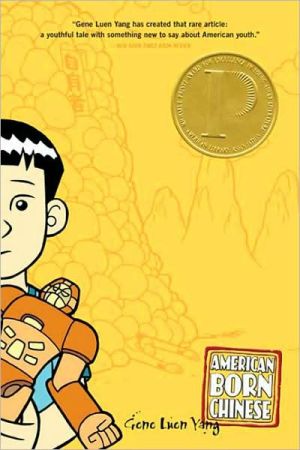American Widow
"At the heart of "American Widow" is the notion of Sept. 11 as a personal, rather than a national or political, tragedy, which, this achingly tender work reminds us, is exactly what it was." — LA Times\ Want to honor those who passed during 9-11? Turn off the stupid documentary glorifying all of those images we've seen over and over, and read this sincere account of how that fateful day effected one person that represents all of us.” — Aint It Cool News\ “[A] raw, occasionally maddening,...
Search in google:
"At the heart of "American Widow" is the notion of Sept. 11 as a personal, rather than a national or political, tragedy, which, this achingly tender work reminds us, is exactly what it was." — LA TimesWant to honor those who passed during 9-11? Turn off the stupid documentary glorifying all of those images we've seen over and over, and read this sincere account of how that fateful day effected one person that represents all of us.” — Aint It Cool News“[A] raw, occasionally maddening, bracing graphic memoir… Unbearably moving.” — The New York Times Book Review“Reading it, you feel that Torres could be your friend or neighbor; she makes an epic tragedy intimate.” — NewsdayOn September 10, 2001, Eddie Torres started his dream job at Cantor Fitzgerald in the North Tower of the World Trade Center. The next morning, he said goodbye to his 7½-months-pregnant wife, Alissa, and headed out the door.In an instant, Alissa’s world was thrown into chaos. Forced to deal with unimaginable challenges, Alissa suddenly found herself cast into the role of “9/11 widow,” tossed into a storm of bureaucracy, politics, patriotism, mourning, consolation, and, soon enough, motherhood.Beautifully and thoughtfully illustrated, American Widow is the affecting account of one woman’s journey through shock, pain, birth, and rebirth in the aftermath of a great tragedy. It is also the story of a young couple’s love affair: how a Colombian immigrant and a strong-minded New Yorker met, fell in love, and struggled to fulfill their dreams. Above all, American Widow is a tribute to the resilience of the human heart and the very personal story of how one woman endured a very public tragedy.The New York Times - George Gene Gustines[September 11, 2001] is fraught with so many emotional and political landmines for countless people that a critic might hesitate to review such an account, especially if the work is less than stellar. Fortunately, American Widow is very good—largely because of the author's willingness to address difficult issues, including her anger at her husband and her frustration in dealing with relief agencies that at times alternated between being overeager and counterproductive…throughout the book, which is black and white with bursts of sea-foam blue and the occasional red and blue, Ms. Choi's illustrations are sharply observed. She does a great job of distinguishing a large cast of characters and settings.
\ George Gene Gustines[September 11, 2001] is fraught with so many emotional and political landmines for countless people that a critic might hesitate to review such an account, especially if the work is less than stellar. Fortunately, American Widow is very good—largely because of the author's willingness to address difficult issues, including her anger at her husband and her frustration in dealing with relief agencies that at times alternated between being overeager and counterproductive…throughout the book, which is black and white with bursts of sea-foam blue and the occasional red and blue, Ms. Choi's illustrations are sharply observed. She does a great job of distinguishing a large cast of characters and settings.\ —The New York Times\ \ \ \ \ Publishers WeeklyTorres's husband, Eddie, started work at Cantor Fitzgerald in the World Trade Center on September 10, 2001. The next day, Alissa became one of the "terrorist widows" of 9/11. American Widow chronicles Alissa's first year without Eddie-including the birth of their child, two months after his death. It also traces their courtship, marriage and the last few days of Eddie's life. This deeply personal book is at times raw, angry, bleak and lyrical. The best prose comes out of Torres's moments of pure, lonely grief, which punctuate her confusing and at times horrifying experiences with various aid agencies, family members, friends and strangers. Choi's art is reminiscent of the work of Andi Watson and Craig Thompson, and complements Torres's writing by emphasizing the ordinary in Alissa's extraordinary circumstances. Torres and Choi do best with the confusion and shock that come with a sudden death, laying out scene after scene without quite connecting them-just as events seem to go on and on without meaning when one has lost someone important. What this book lacks in technique and narrative drive, it makes up in its heartfelt look at the universality in one woman's loss. (Sept.)\ Copyright © Reed Business Information, a division of Reed Elsevier Inc. All rights reserved.\ \ \ Library JournalFew deaths are easy on either the departed or the survivors-how, now, the excruciatingly public deaths of the 9/11 tragedy? For Eddie Torres, it was all over 18 seconds after he took matters into his own hands and jumped from the North Tower, where he'd just started working at Cantor Fitzgerald. For Alissa Torres, Eddie's death and then her own life were out of her hands. Eddie just kept dying over and over, thousands of times throughout the year afterward as seemingly hundreds of misguided cogs in the 9/11 relief juggernaut tried to help the young widow facing motherhood. Wading through grief, parenting, missed connections, misinformation, and paperwork, Alissa finally found solace in revisiting Hawaii, where she and Eddie had vacationed so happily; then in recounting her experience for magazines, and finally in writing this sensitive and appalling graphic work about her year of a thousand Eddie deaths. Her tragedy of errors inspires anger on her behalf, although the story is calmly and beautifully told. Choi's simple and attractive line art is set off by turquoise wash, yielding to a full-color photo at the end when Alissa embraces her life anew. Recommended for all adult collections and readers high school and up.\ —Martha Cornog\ \ \ \ \ \ Kirkus ReviewsA graphic memoir renders the trials of being a 9/11 widow. Torres relates in mostly broad strokes how she grappled with losing her husband when she was seven months pregnant. Eddie Torres, a native of Colombia, had arrived in America several years before and risen from sweatshop laborer to currency broker at Cantor Fitzgerald. His first day at his new job was September 10, 2001. The bulk of the memoir details the cruel comedy of his widow's interactions with the bureaucratic alphabet soup of NGOs and government agencies set up to help people like her, a process with numerous extra tangles because Eddie had recently been hired and his original legal status was muddy. Torres conveys weary outrage at being treated more like a symbol than a person. She cynically writes of her troubled delivery: "They handled me kindly, as a V.I.P., because I had a post-9/11 baby to deliver. Gently, gently, they cut the widow open and took out the orphaned prize." She also decries the mindless invective hurled at 9/11 widows after the media circus decided that they were lazy money-grubbers. Torres scores a few points here and there, but her gauzy and distant authorial perspective dilutes the anger, and a strange lack of detail weakens the book's message. The casual meanness thrown her way is certainly revolting, but readers know so little about her day-to-day life other than her dealings with aid agencies that it's hard to empathize with her. Stiff, blue-tinted art by New York Times illustrator Choi adds little immediacy to the narrative. Muted outrage produces muted results.\ \








